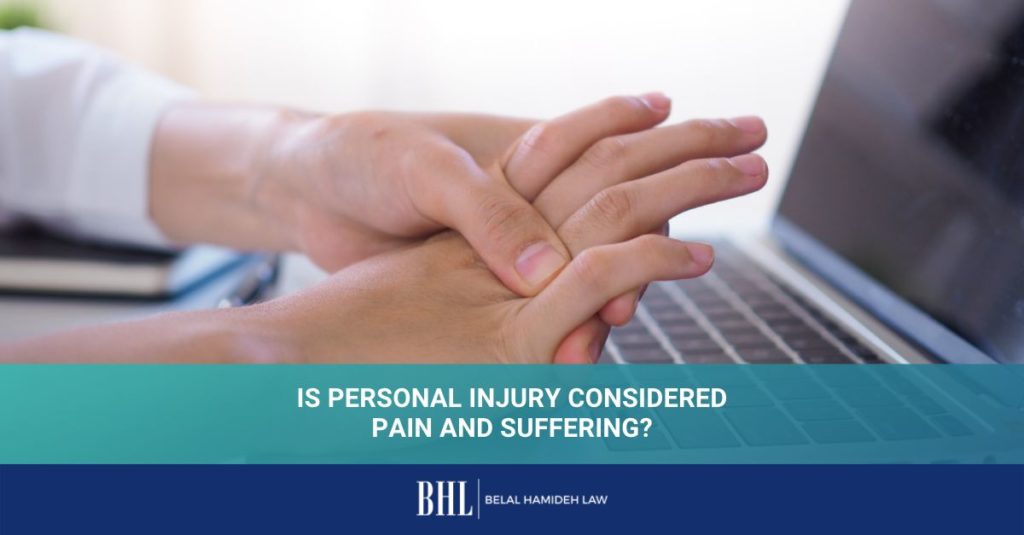If you have been injured by another party’s negligence, you can file a claim against the party who caused your injuries. Therefore, before you talk to the other party’s insurance company, you should speak to a personal injury attorney. An attorney can inform you of your rights and explain what you need to do to file a claim.
How a Personal Injury Attorney Can Help
By seeking help from a personal injury attorney, you can learn more about what it takes to prove negligence. The factors that lead to negligence must be shown before you can sue for specific damages.

What Is Negligence?
Your personal injury attorney must show that your case involves the four elements of negligence – duty, breach, causation, and harm. If another party behaves carelessly, causing another party injury, they are legally held responsible.
Therefore, to win a personal injury case for negligence, the plaintiff must prove the following:
- The defendant owed a duty to act reasonably and carefully
- The defendant breached this duty by acting carelessly
- The action or inaction of the defendant caused direct harm to the plaintiff
- Because of the defendant’s behavior, the plaintiff has the right to sue for damages.
So, what do damages cover? Are pain and suffering included in the settlement for a personal injury lawsuit?
Damages Covered in a Personal Injury Lawsuit
Damages are varied and many in a personal injury lawsuit, depending on the case. Most, if not all cases cover damages that are compensatory in nature.
Compensatory Damages
Compensatory damages cover special or general damages, both of which are given to compensate a claimant for the harm they suffered in an auto accident, slip-and-fall, or medical malpractice cases. Compensatory damages are awarded, as well, in wrongful death lawsuits.
Punitive Damages
Plaintiffs may also seek punitive damages in some personal injury cases. The damages are designed to punish the wrongdoer and are not directly related to the injuries the litigant received. In this case, the claim may be made against a defendant who committed a felony or criminal act, such as driving under the influence or aggravated assault.
The 2 Main Types of Compensatory Damages
You can receive compensatory damages that are classified as general or special.
1. Special Compensatory Damages
Special compensatory damages are directed to settlements that cover the costs tied to a plaintiff’s injuries. Therefore, they are unique to the victim and may differ, depending on the incident. This compensation includes the costs involved with:
- Past, present, and future medical care
- Loss of past, current, and future income
- Household expenses
- Costs related to changes made in the victim’s daily or scheduled plans and routine
2. General Compensatory Damages
General compensatory damages cover the non-monetary damages related to a personal injury claim. These damages are defined as “general” as they cover the harm that people suffer when they are injured unexpectedly. Common injuries falling under this category include:
- Loss of companionship
- Mental distress
- Pain and suffering
Pain and suffering are therefore considered personal injury that requires compensation. A personal injury attorney uses medical records and the testimony of expert witnesses to show the extent of a client’s pain and suffering.
Pain and suffering are tied to the medical treatments you receive and the psychological effects of the accident. The types of injuries sustained and the type of medical care strongly factor into the amount you will get in compensation.
For instance, if you get injured in a car accident where your medical bills add up to $20,000 and your vehicle’s damage is close to the same amount, your damages for pain and suffering can be significant.
The Length of Treatment
Most litigants who receive larger amounts of pain and suffering go through a long recovery period. This can be shown in a patient’s medical records. Usually, a physician will note the length of recovery. He or she may also add that a patient cannot engage in certain activities for a specific amount of time.
In fact, a personal injury attorney often uses a patient’s medical records to show the basis for receiving general compensatory damages. Ongoing medical issues will also play a crucial role in what you receive in a settlement for pain and suffering.
Therefore, it is important that the claimant relies on their doctor to detail any discomfort or pain, both of which can be recorded in a patient’s medical records. In some instances, you may need prescription medicines to alleviate the discomfort you are experiencing. This information can be used when submitting a claim for pain and suffering as well.
It is also important to note any discomfort or pain that is disrupting your ability to live a daily, normal life. You may find some activities almost impossible to perform as a result of your injuries. Also, photograph visible injuries, such as discoloration, swelling, or wounds and date stamp the images in your smartphone’s settings.
Contact a Personal Injury Attorney to File Your Personal Injury Claim
Have you been injured as the result of another party’s negligence? If so, you need to contact an experienced personal injury attorney right away. To receive a free consultation, phone Belal Hamideh Law at (562) 526-1224 today.

